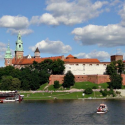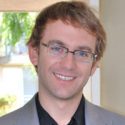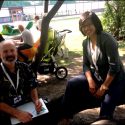The term fitness is used very often in evolutionary biology and plays a central role in the theory of evolution. However, for decades , the status of this concept has been debated , and many questions have been raised by philosophers and biologists alike . What is the definition of fitness? What does being fitter really mean, in scientific terms ? How can fitness be measured ? In recent years , new ideas have emerged within the scientific community which might shed some new light on our understanding of fitness. However, their relationship to the debate concerning fitness still need s to be established. Two things , among many others, are particularly worth mentioning here : first , the theory of niche construction , which invites us to think of an environment not as being granted to organisms , but as created by them . Thus this theory transforms our understanding of environments, a concept which figures frequently in fitness literature. Second , microbiology teaches us that plants and animals interact with many symbiotic microorganisms. Moreover, these microbes exert a major impact on the fitness of these plants and animals , thus expanding our knowledge of the factors that determine fitness. The question is whether – and if so, how – these discoveries influence the debate concerning fitness. The aim of the workshop is to explore this question.
Keynote Speaker:
Lynn Chiu is a philosopher of biology affiliated with the ImmunoConcept Lab of the University of Bordeaux/CNRS , which operates at the intersection of biology and philosophy. Her past research and current interest s concern many important problems found at the frontiers of the philosophy of biology, such as the philosophy of perception, niche construction, symbiosis , and biological individuality. Learn more about Lynn here : https://sites.google.com/view/lynnchiu/
Program (click to enlargen)
General Information
Organizers: Institute of Philosophy, Jagiellonian University
Coordinator: Adrian Stencel
Who can apply?
Philosophers, biologists, medical doctors, and any other scholars, at any point in their career, who are interested in this subject .
Where and when will the workshop be held ?
In Kraków, 6th and 7th of June 2019 .
How to apply?
Send an abstract (max imum 500 words) before 31 March 2019 to: philbio.workshops@gmail.com
All decision s will be made prior to 30 April 2019 .
This workshop is supported by





